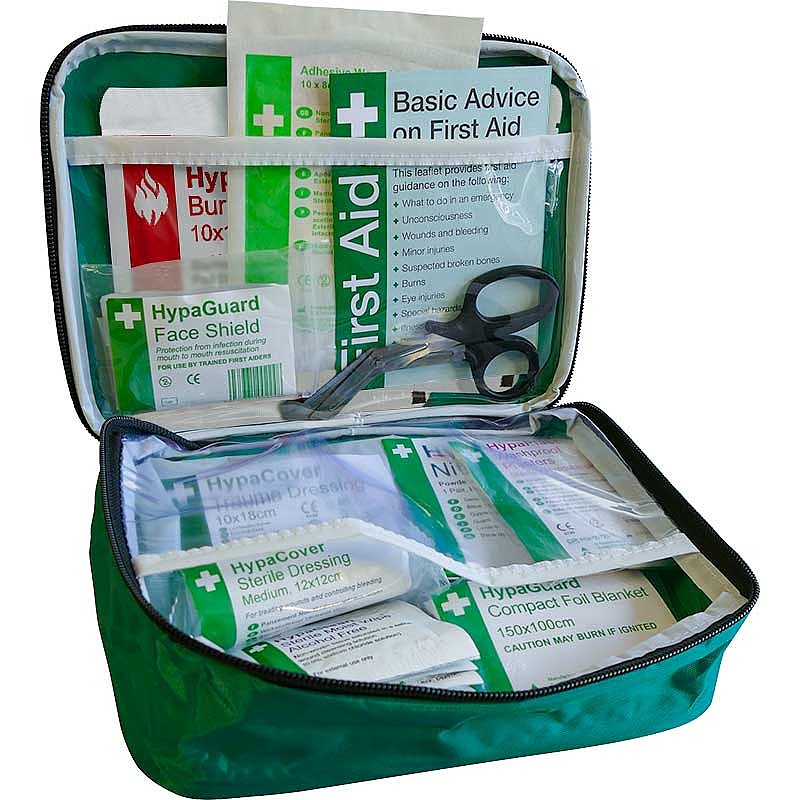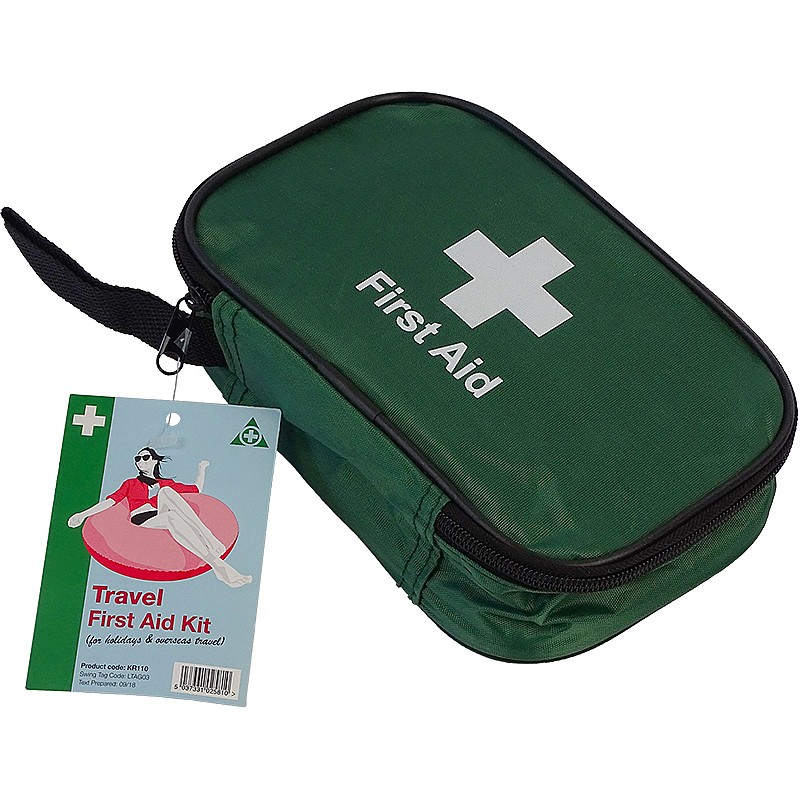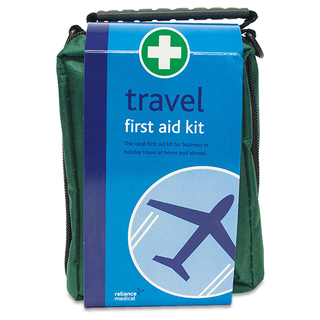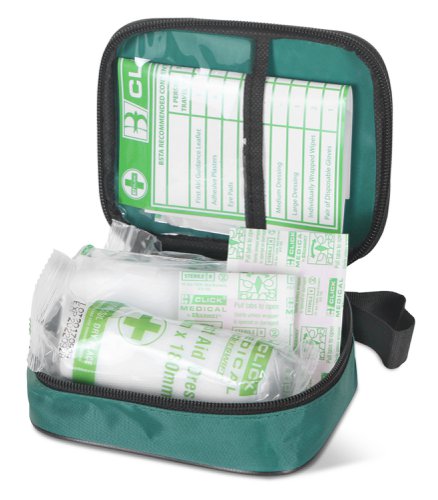When planning your next adventure, packing a travel first aid kit might not be the first thing on your mind. However, as any seasoned traveler will tell you, being prepared for minor mishaps can make a world of difference. In this comprehensive guide, we’ll cover everything you need to know about creating an effective travel first aid kit, sharing personal experiences, and providing practical tips and comparisons of the best kits on the market.
Why You Need a Travel First Aid Kit
No matter where your travels take you, the unexpected can happen. From minor cuts and scrapes to more serious health issues, having a first aid kit can provide peace of mind. My first trip abroad to Thailand was filled with amazing experiences. However, after a scooter accident that left me with a nasty scrape, I realized the importance of being prepared. Having a well-stocked first aid kit meant I could handle the situation without requiring immediate professional help.
Essential Items for Your Travel First Aid Kit
Creating a travel first aid kit involves packing the right items. Here’s a comprehensive list of essential components:
- Adhesive bandages: Various sizes for minor cuts.
- Gauze pads and adhesive tape: For larger wounds.
- Antiseptic wipes: To clean cuts and scrapes.
- Aloe vera gel: Soothes burns and skin irritations.
- Antihistamines: For allergic reactions.
- Ibuprofen or acetaminophen: For pain relief.
- Scissors and tweezers: For handling splinters and cutting tape.
- Thermometer: To check for fevers.
- Prescription medications: If applicable, don’t forget to pack these.
- Emergency contact numbers: Local emergency numbers and your physician’s number.
Travel First Aid Kit Comparison Table
| Travel First Aid Kit | Contents | Rating | Price |
|---|---|---|---|
| Adventure Medical Kits | Comprehensive first aid supplies | 4.5/5 | $29.99 |
| Surviveware Small First Aid Kit | First aid supplies and survival gear | 4.8/5 | $34.99 |
| Everlit Survival First Aid Kit | 218 pieces including survival gear | 4.6/5 | $39.99 |
| Red Cross First Aid Kit | Basic first aid supplies for emergencies | 4.3/5 | $24.99 |

Building Your Own Kit vs. Buying Pre-Made
Before diving into the world of pre-made kits, let’s discuss the pros and cons of building your own kit versus buying a ready-made one.
Building Your Own Kit: Pros and Cons
Pros
- You have complete control over what goes inside.
- You can customize it based on your specific travel needs.
- Can potentially save money if you already have supplies.
Cons
- Time-consuming to gather and organize items.
- Risk of forgetting essential supplies.

Buying a Pre-Made Kit: Pros and Cons
Pros
- Convenient and time-saving.
- Often contains all essential items for various emergencies.
- Many kits are designed for specific activities (e.g., camping, international travel).
Cons
- Can be more expensive than building your own.
- You might find unnecessary items in the kit.
Travel Tips for Using Your First Aid Kit
Now that you’ve got your travel first aid kit ready, here are some tips for effective use:

- Know Your Supplies: Familiarize yourself with what’s in your kit and how to use each item. This knowledge came in handy for me when I had a friend cut her foot while hiking.
- Keep It Accessible: Store your kit in an easily accessible location in your luggage.
- Create a Checklist: Before each trip, review and restock items that may have been used up.
- Stay Informed: Know local emergency services numbers and where to find medical facilities at your destination.
Travel Destinations: Where a First Aid Kit is Essential
Different travel destinations come with varying risks. Here are a few places where packing a first aid kit is crucial:

1. Tropical Destinations
Traveling to tropical areas like the Caribbean or Southeast Asia can expose you to mosquito bites and the risk of infection. Ensure your kit includes insect repellent and antihistamines.
2. Adventure Locations
Places known for outdoor adventure sports (like New Zealand or Costa Rica) require a more robust kit due to the potential for injuries from activities like hiking, biking, or rafting.

3. Remote Areas
If you’re trekking into remote regions, having a well-stocked first aid kit can be a lifesaver, especially if you won’t have immediate access to medical care.
Personal Experiences: Mishaps and Lessons Learned
On my travels, I’ve had my share of cuts, scrapes, and stomach issues. During a road trip through the Scottish Highlands, I stepped on a sharp object while exploring a rocky beach. Fortunately, my first aid kit, which I had fully stocked the night before, allowed me to clean and bandage my foot without delay. This experience reinforced my belief that a well-prepared travel first aid kit can prevent minor issues from ruining your trip.

Frequently Asked Questions (FAQs)
What is the best travel first aid kit?
The best travel first aid kit depends on your travel style and destination. The Surviveware Small First Aid Kit is popular for its comprehensive supply list and compact size, ideal for travelers.

How often should I check my first aid kit?
It’s recommended to check your kit before each trip, ensuring nothing has expired and you’re stocked up on essentials.
Can I take a first aid kit on a plane?
Yes, you can bring a first aid kit on a plane, but make sure that all liquids comply with TSA regulations.
What should I do if I run out of supplies while traveling?
If you run out of supplies, visit a local pharmacy or general store to replenish your first aid kit. Many countries have pharmacies stocked with common items.
Conclusion: Be Prepared for Anything!
Your travel first aid kit is an essential item that can provide peace of mind while exploring new corners of the world. Whether you choose to build your own or purchase a pre-made kit, ensure that it is tailored to your travel needs. As I learned the hard way, being prepared can turn a potential travel disaster into just a minor inconvenience. So pack that first aid kit and travel confidently!